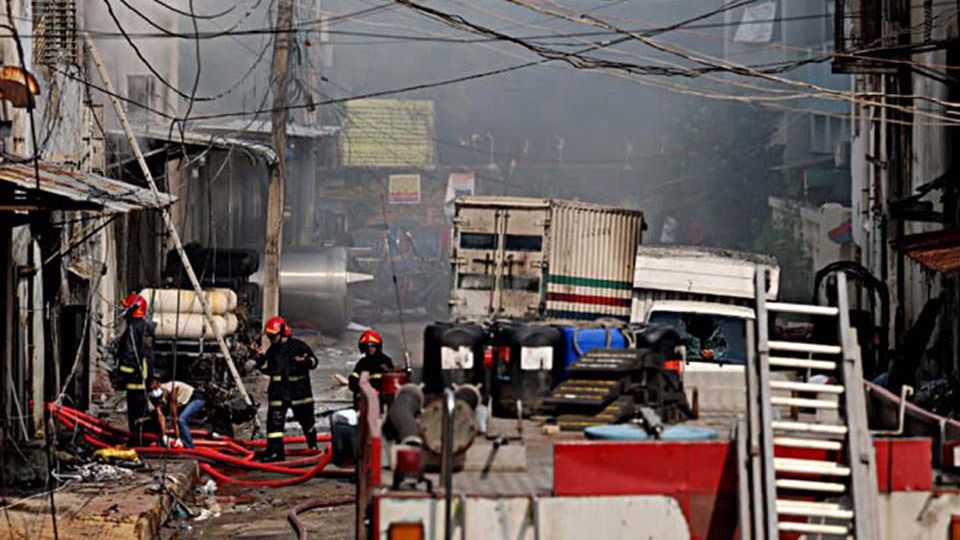October 16, 2025
DHAKA – It is unacceptable that yet another chemical warehouse fire has led to deaths, this time claiming at least 16 individuals working in a garment factory next to the warehouse in Mirpur. Just a few weeks ago, on September 22, four firefighters died after receiving severe burn injuries while extinguishing the blaze at a warehouse in Sahara Market of Tongi, Gazipur.
What has come out of this horrific incident is the level of negligence and disregard for human lives. The owners of the warehouse and garment washing unit did not install the minimum fire safety measures; they must be held accountable by law.
There seem to be several factors that led to so many deaths. The victims died after inhaling the toxic gas from the chemical explosion. According to a fire service official, the rooftop exit was locked with two padlocks, so even if people could go to the top floor, they would not have been able to get to the rooftop. Neither the garment factory unit nor the chemical warehouse had any fire safety licence, fire safety plan, or proper fire protection measures.
Thus, all routes to escape were blocked. In fact, according to the Fire Service and Civil Defence, the chemical warehouse was operating illegally and was served notice of eviction several times.
But of course, the most crucial question is why was that chemical warehouse in that area in the first place? There are numerous factories in the narrow lanes of the area, most of which work on subcontracts, so they do not fall under any formal body.
According to the Fire Service and Civil Defence (FSCD) department, there are many chemical warehouses in the city storing explosive chemicals, often illegally and in densely populated areas.
We have laws that bar commercial organisations, including factories and chemical warehouses, from being housed in residential buildings or areas.
The Fire Prevention and Control Act, 2003, mandates all chemical factories and warehouses to obtain a licence from FSCD, but many such establishments operate without one. Thus, despite having laws and regulations to prevent such disasters, they are rarely enforced.
Soon after the June 2010 fire that claimed 126 lives in Nimtoli, the government initiated four projects to relocate the chemical, plastic, printing, and electronics industries from Old Dhaka. But three of them remain incomplete mainly due to red tape and bottlenecks in land acquisition.
The present government must take immediate steps to prevent future disasters.
Existing laws must be strictly enforced against factories or warehouses operating without licences or lacking minimal safety standards. Meanwhile, the relocation plans must be implemented on an urgent basis.
The small Shyampur project that is already complete must be revived and owners of chemical warehouses and factories must be convinced to relocate.
Also, authorities must ensure that relocation of chemical warehouses to the chemical industrial park in Munshiganj is completed by the expected timeline which is December 2025.
Another project in Munshiganj to relocate 300 plastic factories from old Dhaka that requires land acquisition must also be accelerated. These basic safety measures must be put in place so we do not lose precious lives in preventable fire disasters.


